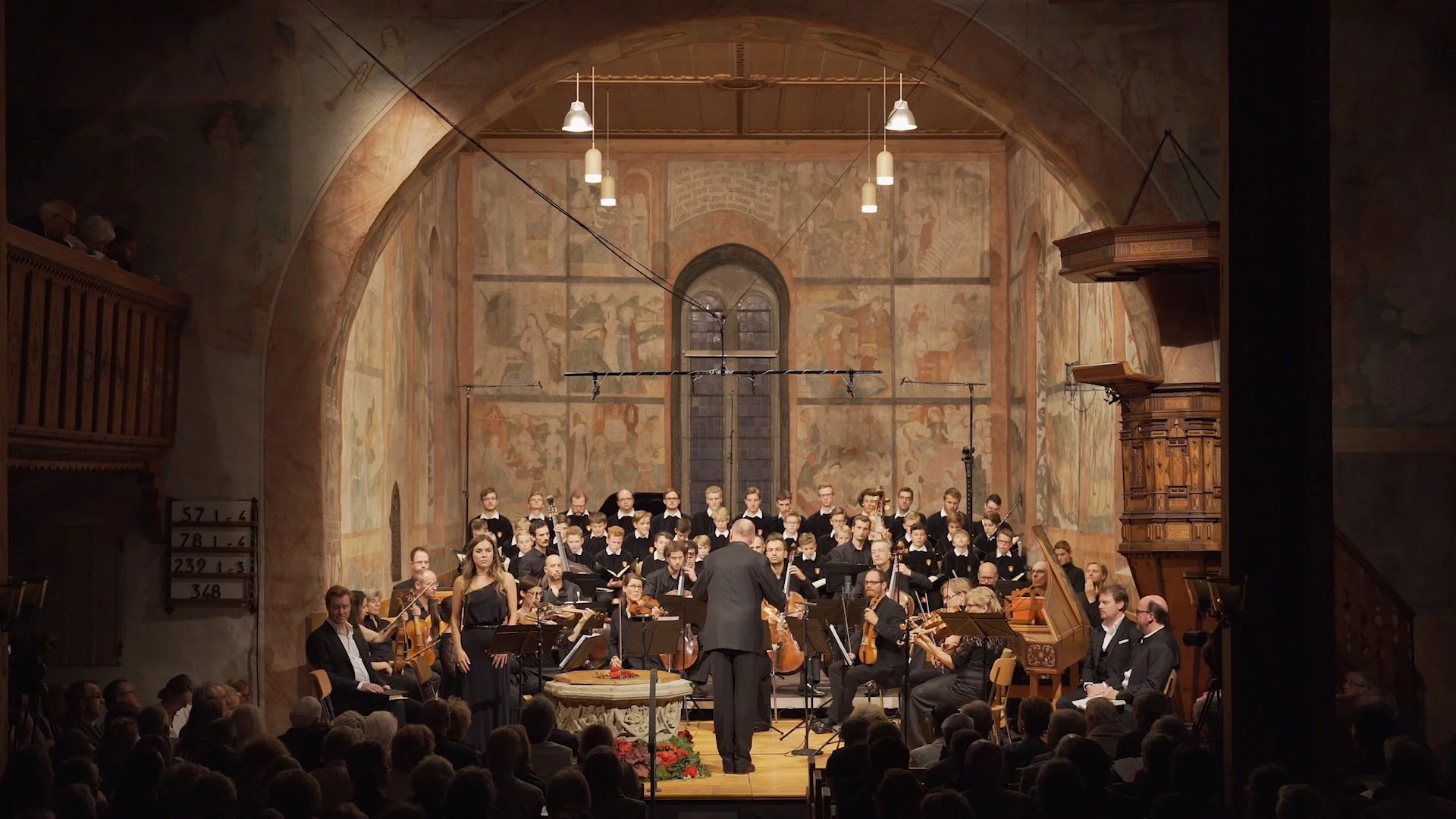Paul McCreesh & the Tölzer Knabenchor
Mary Bevan, Soprano
Tim Mead, Countertenor
Jeremy Ovenden, Tenor
Neal Davies, Bass
Tölzer Knabenchor
Kammerorchester Basel
Paul McCreesh, Conductor
GEORG FRIDERIC HANDEL:
“Messiah”, Oratorio for Soloists, Choir and Orchestra, HWV 56
Recorded on 15 July 2017 in the Church in Saanen
Paul McCreesh’s interpretation of «Messiah»
Everybody knows Georg Frideric Handel’s «Halleluja». But what else do we know about his «Messiah»?
On July 15 2017 the Gstaad Menuhin Festival’s audience had the privilege to learn more about the authentic and true character of Handel’s fantastic oratorio. The English conductor and Handel expert, Paul McCreesh was visiting with «his» Gabrieli Consort & Players. He is the group’s founder and artistic director.
To McCreesh it was vital to go back to the sources, because we had become used to theatrical and sentimental interpretations of «Messiah». They became fashionable back in the 19th century with Queen Victoria’s gigantic concerts at the Crystal Palace. These events allowed ten thousands of Londoners to experience classical music.
Even the king rose when he heard the «Hallaluja»
It’s not wrong or problematic in itself to adapt music to a certain context, Paul McCreesh explained to us. Handel himself used to change his work (music and libretto!) according to the context in which it was staged – be it a different city or even country.
However, McCreesh decided to perform Messiah in the same, original manner it first premiered in Dublin on April 13 1742. This version is exceptionally personal and magnificently true to the great libretto by Charles Jennenes.
Unfortunately, the libretto, contrasting episodes from the Old and the New testament, did not enjoy huge success with the pious Londoners of its era. They went our of their way to ruin the masterpiece’s reputation, stating that it was too pompous and lacking in silence and space for devotion. Later «Messiah» became very popular in the capital. The audience in London needed time to get accustomed to a new kind of biblical drama – operating without set design or costumes, relying solely on the power of the music. But then it took London in a storm!
They say that King George II, after hearing the «Halluluja» for the first time, jumped up from his chair. He was deeply moved and led the rest of audience to follow his example.



